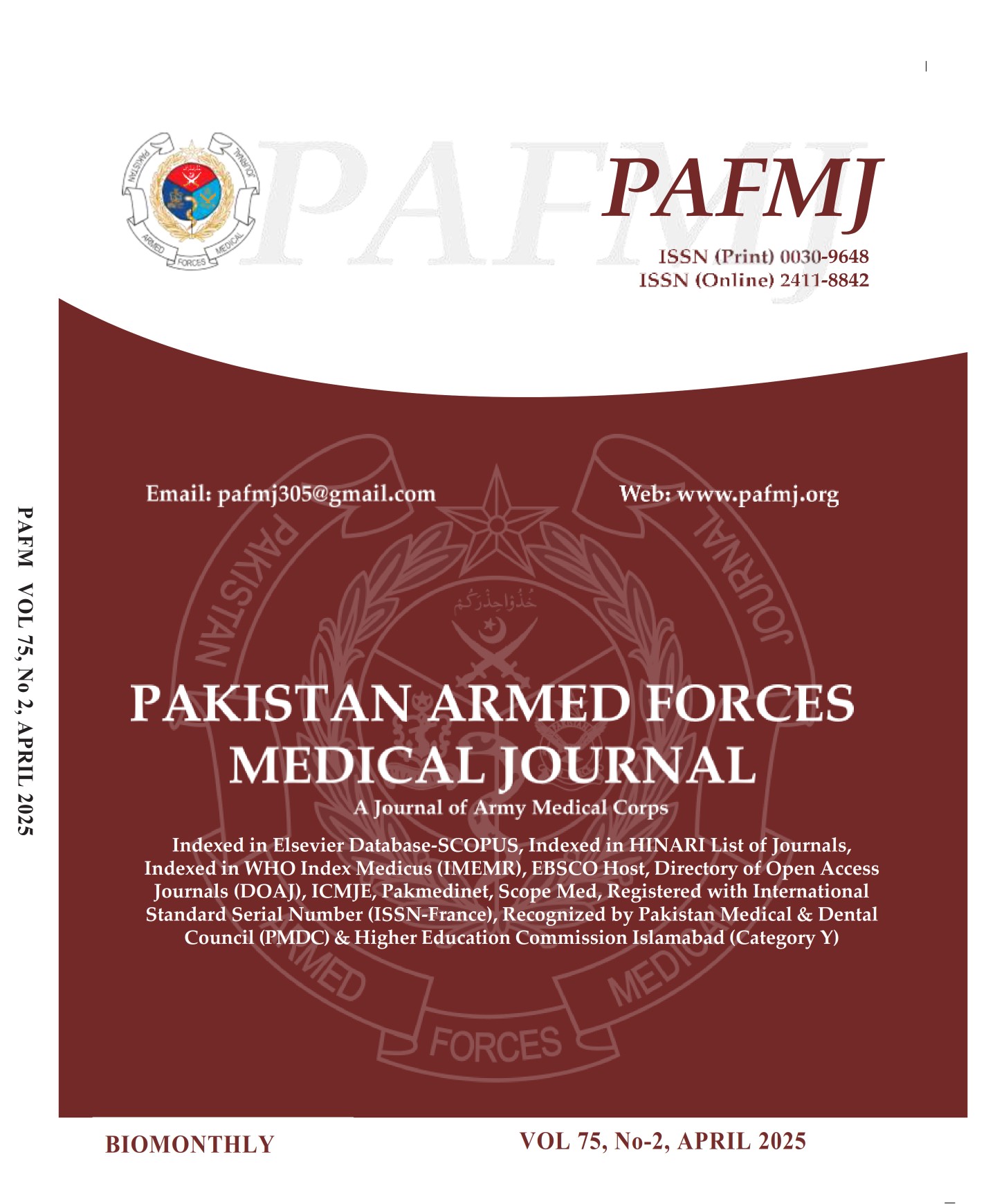The Scalpel and the Algorithm: Navigating the Ethical Landscape of AI in Medical Writing
DOI:
https://doi.org/10.51253/pafmj.v75i2.13441Abstract
The rapid advancement of artificial intelligence (AI), particularly large language models (LLMs) like ChatGPT, has sparked excitement and apprehension within the medical community. While the allure of automated medical writing is undeniable, we must proceed cautiously, acknowledging the ethical implications of integrating these powerful tools into our practice. LLMs offer enticing possibilities, from streamlining literature reviews to drafting manuscripts, but their limitations and potential pitfalls demand careful consideration. As Fingerhut and Winter aptly warn, "AI in medical writing has limitations and dangers. The medical community must be aware of them."1
One of the most significant concerns is the potential erosion of critical thinking. LLMs, trained on vast datasets, excel at mimicking human language and generating seemingly coherent text. However, they lack the nuanced understanding and contextual awareness crucial for scientific reasoning. As Sharma et al. points out, "AI tools cannot understand new information, generate insights, or perform deep analysis, which are essential for meaningful scientific discourse."2 Over-reliance on these tools can lead to cognitive offloading, where individuals delegate critical thinking tasks to the algorithm, potentially hindering the development of essential analytical skills.4 This is particularly concerning for trainees and early-career professionals, who may become overly dependent on AI, bypassing the rigorous process of independent learning and critical evaluation.1-3
Downloads
References
Fingerhut A, Winter DC. Artificial intelligence and medical writing: where are we going? Br J Surg. 2023 ;110(8):883-884.
https://doi.org/10.1093/bjs/znad169
Sharma A, Rao P, Ahmed MZ, Chaturvedi K. Artificial intelligence in scientific writing: opportunities and ethical considerations. Int J Res Med Sci 2025;13(1):532-542.
https://doi.org/10.18203/2320-6012.ijrms20244167
Doyal AS, Sender D, Nanda M, Serrano RA. ChatGPT and Artificial Intelligence in Medical Writing: Concerns and Ethical Considerations. Cureus. 2023;15(8):e43292.
https://doi.org/10.7759/cureus.43292
Gerlich M. AI Tools in Society: Impacts on Cognitive Offloading and the Future of Critical Thinking. Societies 2025;15(1):6.
https://doi.org/10.3390/soc15010006
Meskó B. Prompt Engineering as an Important Emerging Skill for Medical Professionals. J Med Internet Res 2023;25:e50638.
Downloads
Published
Issue
Section
License

This work is licensed under a Creative Commons Attribution-NonCommercial 4.0 International License.















